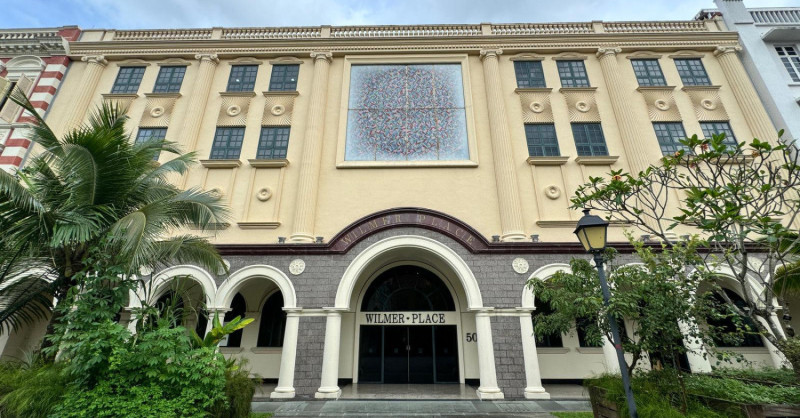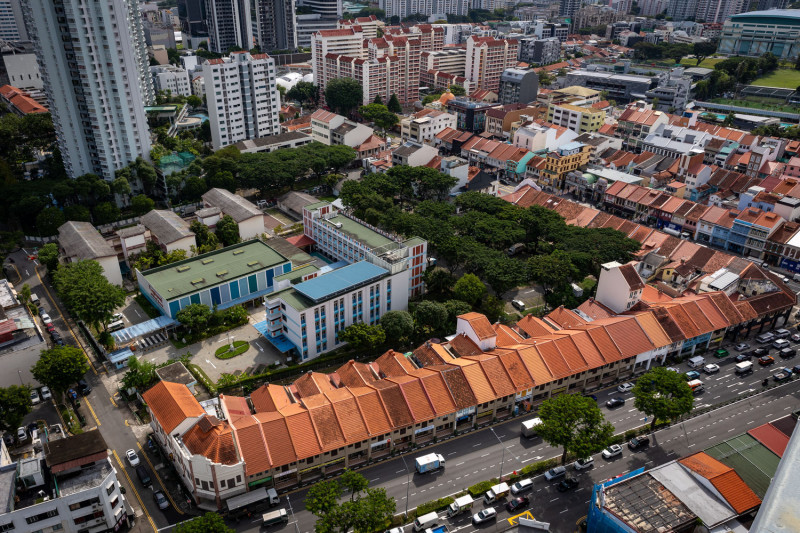LHN eyes partnerships to support Coliwoo’s expansion plans
In the five years since the Coliwoo brand entered Singapore’s co-living market, it has grown to be a dominant player. “Over the past five years, revenue from Coliwoo has been increasing and it is now a key contributor to LHN’s overall revenue and profit,” says Kelvin Lim, executive chairman of LHN and founder of Coliwoo.
Coliwoo is LHN’s sole residential management business in Singapore under its space optimisation business arm. Other units under this business arm are 85 SOHO, its overseas residential management business in Cambodia, Myanmar, and China; Work+Store, its industrial storage space and facilities rental business; and Greenhub, its commercial management business.
“Rather than simply leasing out space, real-estate-as-a-service is a capability that LHN is building up, and co-living and self-storage are examples of our approach,” says Lim.
Read also: LHN posts 23.4% drop in 1HFY2024 earnings to $13.0 mil despite revenue growth
Advertisement
Advertisement
The Mainboard-listed real estate management services group also has its energy resources, facilities management, and property development and investment business as its other business arms.

Real-estate-as-a-service is a capability that LHN is building up, and co-living is an example of this approach, says Lim. (Picture: Samuel Isaac Chua/The Edge Singapore)
Coliwoo accounts for more than half of the revenue generated as part of LHN’s space optimisation business, according to its 1H2024 results announcement in May. The co-living business brought in revenue of $20 million, and its space optimisation business raked in $35.9 million in revenue for the six months ended March 31.
Revenue from its Coliwoo properties has doubled since the same period last year when the local co-living business raked in revenue of $10.47 million in 1H2023. This revenue growth comes on the back of a steady expansion in Coliwoo’s real estate portfolio, and the company is still considering more properties to boost its market presence in the local co-living segment.

Wilmer Place, a four-storey non-conservation building, will be refurbished and converted into a Coliwoo co-living space (Photo: Savills)
In February, LHN acquired GSM Building on Middle Road in an en-bloc sale for $80 million. In April, the company announced that it would sell 20% of its stake in GSM Building to Macritchie Developments, which is 90% owned by Ching with the remaining 10% held by his son Shawn.
“When we look out for potential partners, we don’t just consider the capital contribution they may offer but their integrity and commitment towards a long-term partnership,” says Lim. “We don’t want to partner with someone, only to find them as a new competitor later on.”

Coliwoo’s Lavender Collection (shophouses in foreground) has 105 residential units and is its first shophouse co-living lifestyle hub. (Picture: Samuel Isaac Chua/The Edge Singapore)
“We will be recycling our assets, especially properties in our portfolio that yield between 20 and 60 keys... I believe we need to aim for at least 150 keys per project to be more economical in terms of our operating costs model,” says Lim. He points out that the new Coliwoo space at GSM Building will have about 200 keys.
Read also: Coliwoo opens River Valley property, its 14th in Singapore
Advertisement
Advertisement
About 30% of the residential properties in Singapore aare made up of the smaller-sized properties, and the group intends to put them on the market for sale eventually. “A number of family offices have expressed interest in investing in some of these properties, and we would also be in the right position to help them manage these assets,” says Lim.

Recent acquisitions, openings
In April, LHN, through its business unit LHN Facilities Management, won the SLA tender to manage the former Bukit Timah Fire Station at 260 Upper Bukit Timah Road. Its concept for the heritage site includes a Coliwoo serviced apartment, community-use elements like a swimming school, and F&B options. The space is set to be unveiled in 2Q2025. Coliwoo’s latest openings are Coliwoo River Valley 268 and Coliwoo River Valley 288, which were launched in August. These increase its footprint in the River Valley area to three properties with 85 keys in total. Its first property in the area, Coliwoo River Valley 298, opened last June. LHN entered a joint venture with Ching Chiat Kwong, executive chairman of Singapore-listed property developer Oxley Holdings, and his son Shawn Ching to acquire Wilmer Place at 50 Armenian Street for $26.4 million. This is the second partnership between the two parties. Read also: Coliwoo opens its 15th co-living property in Singapore at Pasir Panjang Advertisement Advertisement
Buying bigger
However, Coliwoo has not held on to all the properties it has picked up over the past five years. For example, it is no longer operating a Coliwoo at 471 Balestier Road, a walk-up hotel that it jointly acquired for $15 million in 2021 with mattress company Four Star. Similarly, it is no longer running a Coliwoo property at 115 Geylang Road, which it acquired for $13.5 million in 2021. Its competitor, Habyt, is currently managing both properties on a master lease. Another hotel property that is not flying the Coliwoo flag is a two-storey development at 40 Amber Road and a neighbouring four-storey building at 42 Amber Road. LHN acquired these two hotel properties for $27 million back in November 2020, which were its first hotel concept under the nascent Coliwoo brand at the time. Today, the property is run by International Service Apartments. Lim says that the company is continuously evaluating opportunities to recycle capital towards new real estate opportunities that are more aligned to the future growth direction of the Coliwoo brand. Similary, in its August business update, LHN said that its capital recycling initiatives involve selling non-core assets and reinvesting the capital to expand the Coliwoo brand.
Finding untapped opportunities
As the company continues to expand its market share in the residential co-living segment, Lim says that the group is also exploring new growth opportunities in other lodging segments. In January, LHN, via its subsidiary Chua Eng Chong Holdings, was awarded a contract from MOH Holdings to design, retrofit, and operate two of the latter’s lodging facilities at 100 Ulu Pandan Road and 60 Boundary Road. MOH Holdings is a holding company that oversees Singapore’s public healthcare clusters — National University Health System, National Healthcare Group, and Singapore Health Services. The contract will see LHN redesign and manage accommodation for about 700 healthcare professionals. “Managing long-term lodging for an industry-specific workforce is a growth area we are keen to explore,” says Lim. Colloquially known as dormitories, the build quality and product offering of these lodging properties have remained unchanged for decades and are primed for disruption, he says. Lim reckons there is also an untapped market for high-quality accommodation options for employees in the semiconductor and R&D industries. “These are professionals working in highly specialised industries and we believe that the right co-living product would entice them,” he says. Looking ahead, Lim says that the brand needs to offer more value to customers if it wants to build stronger brand loyalty, especially since it would like to grow its corporate bookings by 10% in the coming years. LHN hopes to expand its residential management business into Malaysia, Indonesia, and Thailand. “We hope to launch a significantly-sized project (in terms of number of keys) by the end of next year, and we are concurrently searching different markets for like-minded partners and suitable projects,” says Lim.